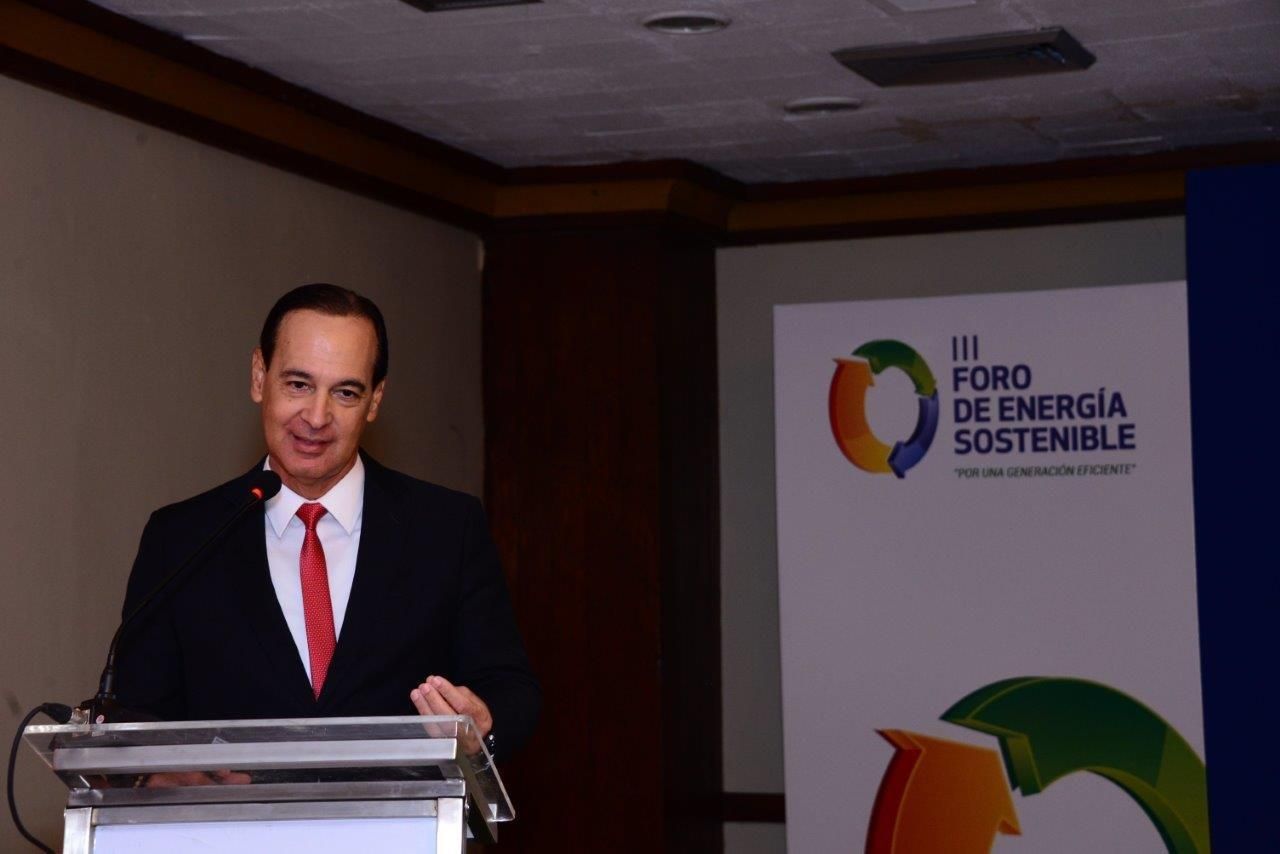
Categories:
Publication date:
Dean of Engineering of INTEC encourages the use of renewable energy in the DR; cites regulatory challenges for investment
Santo Domingo.-El engineer Arturo del Villardean of Engineering Area of the Instituto Tecnológico de Santo Domingo (INTEC), stated that in Dominican Republic el Energy cost is expensive and poor in voltage, so currently use renewable energy sources it becomes a necessity.
"Besides that it is cheaper, in the country we have it, because we have air and sun, while the raw material for the other energies we have to buy it," pondered Del Villar, who at the same time highlighted that 20% of energy that is consumed in the INTEC is produced through solar energy.
The dean pointed out that the understanding and application of renewable energies is on the rise, because of his efficiency and low cost compared to sources that depend on fossil fuels.
During his presentation at the III Forum of Sustainable Energy, he argued that in the academic sector research they have to revolve around themes that yield immediate benefits for the country, and therefore, INTEC focuses on research that produces a rapid return.
About the engineering challengesHe said that in the Dominican Republic and the rest of the world, the lack of professionals remains one of his big problems. He pointed out that since high school students do not favor engineering because of fear infused about mathematics so they prefer to go to another branch that excludes calculations or integrals.
He explained that for this reason, one of the actions carried out by INTEC is to establish the Advisory Committees, so that the sectors that receive the professionals, once they finish their careers, determine the needs of the market and what are the competences required by the graduates, and thus constantly improve the curriculum.
Del Villar explained that INTEC's academic offer includes concentrations, which have arisen as a result of the Committee's requests; doctorate in Energy Management for Sustainable Development, doctorate in Environmental science, Speciality on Environmental science, Speciality on Environmental Education and Sustainable Development, Speciality on Renewable Energy Technology and mastery in Renewable Energy Technology.
Regulatory Challenges
Del Villar during his presentation “Regulatory challenges: investor version”, He stressed that in the Doing Business 2019 Index, from the World Bank, Dominican Republic went from occupying the 99 position to 102 position in the ranking of 190 countries.
He also said that other indicators that deteriorated, according to the report, were the obtaining electricity, insolvency resolution, property registration, cross-border trade, obtaining credit, construction permit management and tax payments.
INTEC Workshops
El INTEC as an academy of higher education granted the academic endorsement of the III Sustainable Energy Forum, so during the event several teachers of the Engineering Area taught various workshops. The teacher Deyslen Mariano, when exposing about intelligent buildingsHe pointed out that his technology should include internet of things, predictive analysis, open standard architecture, next generation power systems and building management.
“The steps to implement really intelligent buildings are to opt for intelligence from the beginning, identify the experts, remember the basics, be as smart as your building needs to be, have a data treatment, not discard its life cycle and choose a strong intelligent partner, ”he detailed.
While, Miguel Aybar Mejíahe said the benefits of big data analysis on the Internet of Things (IoT) intelligence network are the increased system stability, improve the customer experience, short term load forecast and verification of distribution network.
“Currently there is no policy for the administration and promotion of the Internet of Things in the Dominican Republic to implement smart electric microgrids by the State, therefore we recommend consulting with the Presidential Office of Information and Communication Technologies, the Dominican Institute of Telecommunications, the National Energy Commission and the Electricity Superintendency at the time of initiating energy projects oriented to the use of this technology, ”he said.
Aybar stressed that some of the challenges of IoT are: national regulation and policies, energy theft and storage equipment, deficiencies in network infrastructure and cybersecurity, storage concerns and high capital investment.
Meanwhile, Manuel GonzalezHe pointed out that for conform an energy policy according to sustainable development a elevation of energy efficiency, replace energy sources with others with less environmental impact and use of clean technologies to mitigate environmental impacts.
"With energy efficiency, energy costs in companies are reduced globally, energy dependence from abroad is reduced, security of energy supply is increased, and consumption of natural resources and environmental damage are reduced."
Teachers also participated in the activity Victor Samuel Ocaña, with the workshop “The energy valuation of waste and waste"And Atilio de Frias, with the panel “Regulatory challenges in energy generation through biomass and waste".
